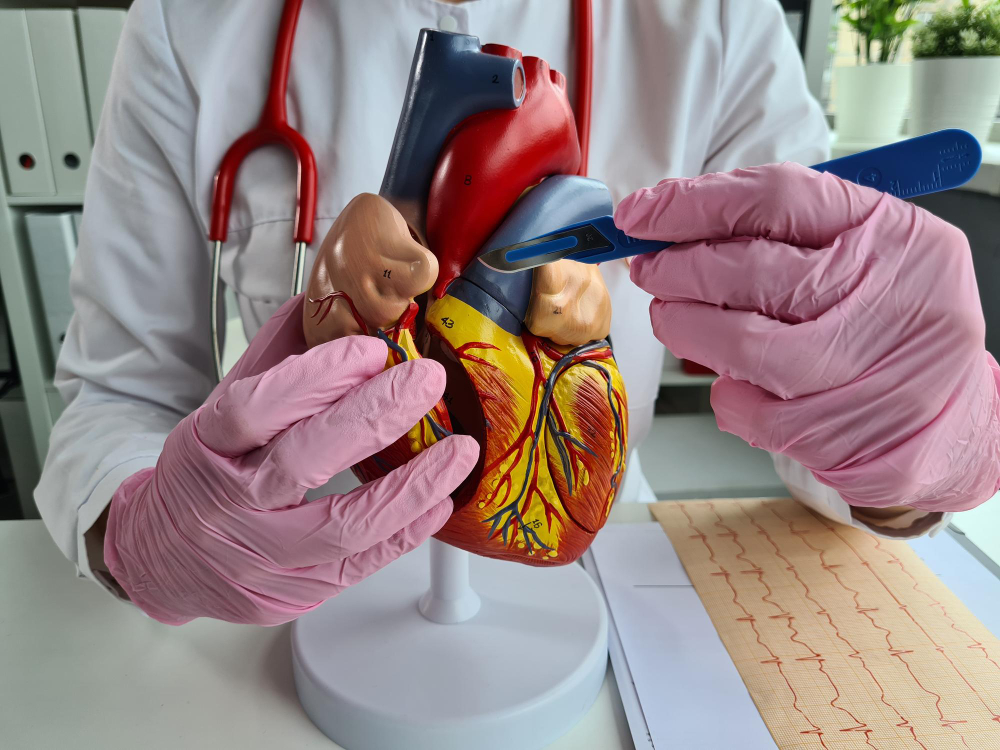Heart Murmurs

Understanding Heart Murmurs
Heart murmurs are abnormal sounds heard during the heartbeat cycle, typically during a physical examination with a stethoscope. They can vary in intensity, duration, and pitch and may indicate underlying heart conditions or abnormalities in blood flow within the heart.
Types and Causes
Heart murmurs can be classified into two main types:
Innocent (Functional) Murmurs: Innocent murmurs are benign and usually harmless. They often occur in children and young adults and are caused by turbulent blood flow through the heart’s chambers or valves, typically due to increased blood flow or structural changes in the heart during growth and development.
Abnormal (Pathologic) Murmurs: Abnormal murmurs are typically associated with underlying heart conditions or structural abnormalities, such as heart valve disorders (e.g., mitral valve prolapse, aortic stenosis), congenital heart defects, infections (e.g., endocarditis), or heart muscle abnormalities (e.g., cardiomyopathy).
Symptoms and Diagnosis
Heart murmurs themselves often do not cause symptoms and are usually detected during routine physical examinations. However, depending on the underlying cause, associated symptoms may include:
- Shortness of breath
- Chest pain or discomfort
- Fatigue
- Dizziness or fainting
- Swelling in the legs or abdomen
Diagnosing the cause of a heart murmur typically involves a thorough medical history review, physical examination, and additional tests such as echocardiography, electrocardiogram (ECG/EKG), chest X-ray, or other imaging studies to evaluate heart structure and function.
Treatment and Management
Treatment for heart murmurs depends on their underlying cause and associated symptoms. Innocent murmurs generally do not require treatment and often resolve on their own over time. However, abnormal murmurs may require further evaluation and management, which may include:
- Medications to manage symptoms or underlying heart conditions
- Antibiotics to prevent infections in individuals with certain heart conditions
- Surgical or interventional procedures to repair or replace damaged heart valves or correct structural abnormalities
- Lifestyle modifications such as dietary changes, exercise, and smoking cessation to reduce the risk of complications and improve heart health.
